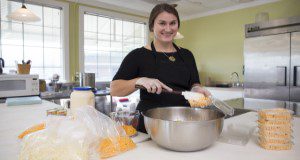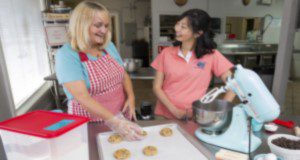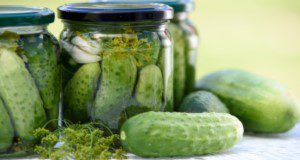In Florida, individuals can manufacture, sell, and store specific types of cottage food products in their primary home kitchen in accordance with Florida Statute 500.80. This new 3-page fact sheet, written by Sarah M. Ellis, Jennifer Hagen, and Matthew D. Krug and published by the UF/IFAS Food Science and Human Nutrition Department, provides basic information and resources for clientele who are interested in starting a food-based business out of their home kitchen. This document is one in a “Florida Food Entrepreneur” series, which seeks to assist new and established food entrepreneurs by providing information on topics relevant to food-based businesses.
https://edis.ifas.ufl.edu/fs425
Tag: Food Entrepreneurship in Florida series
Finding and Using a Co-Packer
A contract packager, commonly called a co-packer, is a manufacturer that will produce, package, and/or label a product for clients. This new 7-page factsheet provides a brief overview on the definition of co-packers, advantages and disadvantages of using a co-packer, and the list of things you need to consider when you hire and work with a co-packer. It also includes a noncomprehensive list of co-packers in Florida and Georgia. This factsheet is one in the Food Entrepreneurship in Florida series, which serves as a useful guide to help run a successful food-related business. Written by Alison O’Donoughue, Wendi Jennings, and Soohyoun Ahn, and published by the UF/IFAS Food Science and Human Nutrition Department.
https://edis.ifas.ufl.edu/fs380
How to Start a Food Business: Basic Food Technology; Food Acidity
Food acidity is an important parameter in food product development. Most people know that food acidity influences flavor, but more importantly, food acidity can affect the ability of microorganisms to grow in food. Food acidity, or the amount of acid that is present in the food, is used to classify a food product, and that classification determines the regulatory requirements for the specific food product. This new 6-page publication of the UF/IFAS Food Science and Human Nutrition Department describes how to measure food acidity and how food is classified based on its acidity. Written by Soohyoun Ahn, Jayna Goldstein, George Baker, and Matthew Krug.
https://edis.ifas.ufl.edu/fs325
How to Start a Food Business: Writing a Business Plan
 Before starting a new food business, you should set a goal and have detailed plans to accomplish that goal. But writing a good business plan is often a challenge and it requires a great amount of effort. This 3-page fact sheet provides guidance on how to write a good food-business plan. Written by Soohyoun Ahn, Lisa House, and Renée Goodrich-Schneider, and published by the UF Department of Food Science and Human Nutrition, December 2014. (Photo: iStock/Thinkstock)
Before starting a new food business, you should set a goal and have detailed plans to accomplish that goal. But writing a good business plan is often a challenge and it requires a great amount of effort. This 3-page fact sheet provides guidance on how to write a good food-business plan. Written by Soohyoun Ahn, Lisa House, and Renée Goodrich-Schneider, and published by the UF Department of Food Science and Human Nutrition, December 2014. (Photo: iStock/Thinkstock)
http://edis.ifas.ufl.edu/fs259


